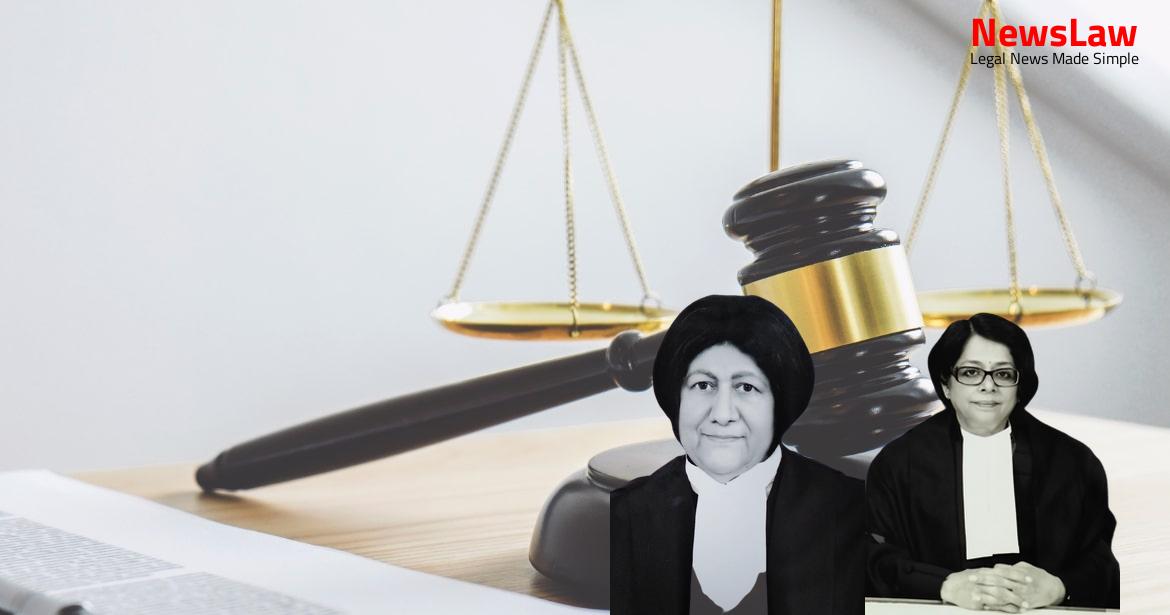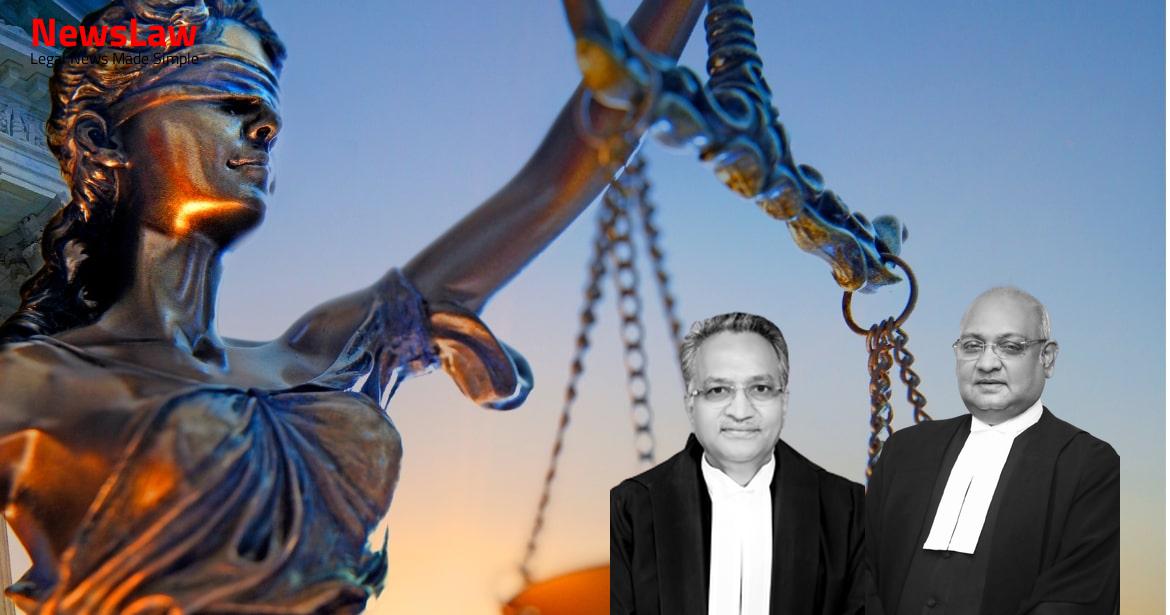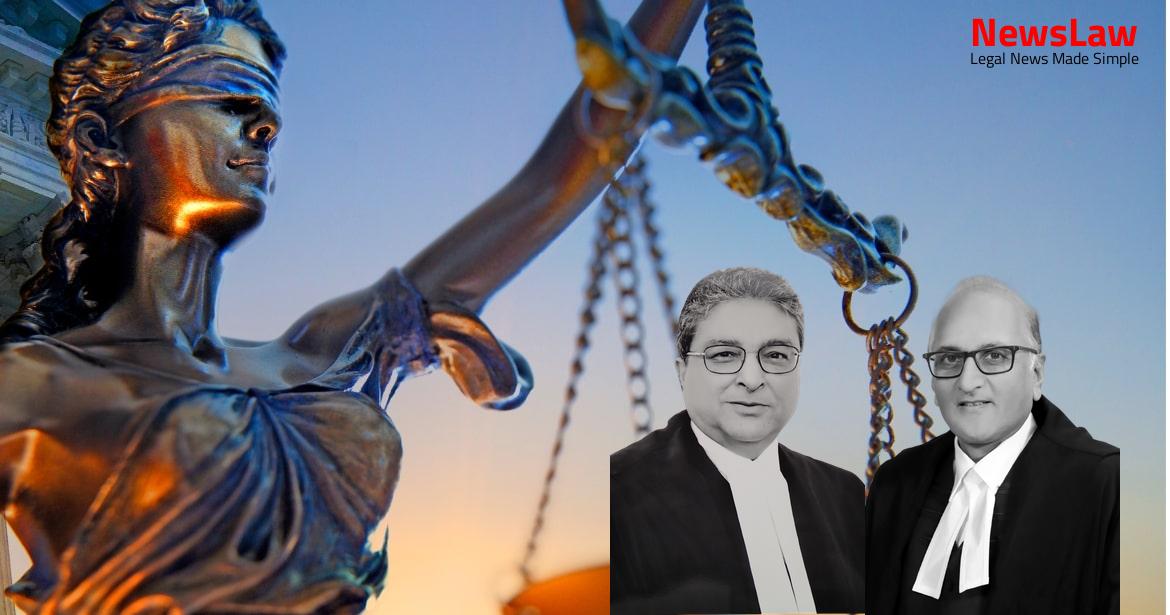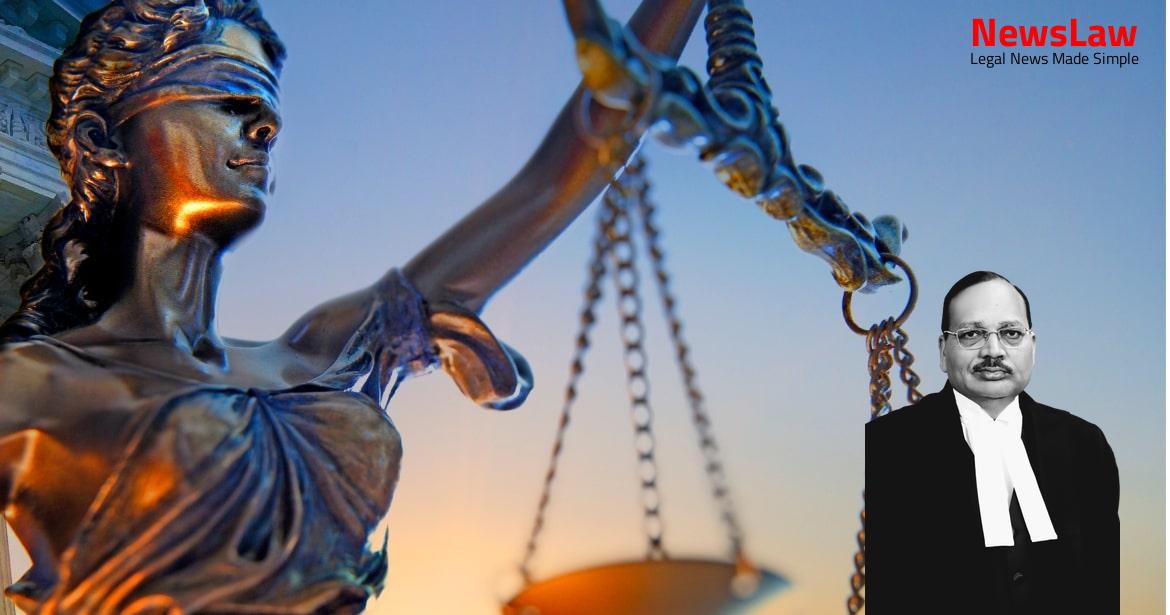Delve into the nuanced legal examination of disciplinary proceedings in a recent court case. The High Court’s in-depth analysis on judicial review, standard of proof, and the employer’s responsibility is crucial in understanding the outcome of the case.
Facts
- A succession of witnesses declared hostile during the trial.
- Appeal dismissed by Inspector General of Police.
- District Superintendent of Police concluded charges against respondent established.
- The case revolved around a land dispute between respondent and deceased.
- Alleged grudge held by respondent towards deceased.
- Star witness Jodh Singh failed to provide crucial evidence.
- Respondent arrested on 9 September 2002.
- Disciplinary proceedings based on evidence from various witnesses.
- Review by State Government dismissed in 2008.
- Respondent filed petition under Article 226 of the Constitution challenging dismissal from service.
- Charge-sheet filed under Sections 302, 201, and 120B.
- The Division Bench granted the respondent reinstatement in service with no back wages for the seventeen years that elapsed since his termination.
- The Division Bench reversed the judgment and concluded that there is no evidence in the disciplinary enquiry to sustain the finding that the respondent committed a murder while on leave from duty.
- The High Court also noted that the evidence of PWs 5, 6, 7, 8, 9 and 10 in the disciplinary enquiry was of only a formal nature.
- The High Court held that the cross-examination of Jodh Singh was ignored in the course of the disciplinary enquiry and was not referred to by the disciplinary authority while arriving at its findings.
- In appeal, the judgment of the Single Judge was reversed by the Division Bench on 24 April 2019.
Also Read: Electoral Malpractices in Mayor Election
Arguments
- The respondent was found to be not connected with the murder of Bhanwar Singh based on evidence.
- The ‘minor charge’ against the respondent was related to availing three extra days of casual leave without informing the superior officer.
- The approval for the additional casual leave was given by the superior officer upon the respondent’s joining duties, but the charge was modified to state misrepresentation of facts in obtaining approval.
- It is argued that if the charge of being involved in the murder is not established, the charge of taking casual leave without informing the superior should cease to exist.
- Even if assuming guilt for taking casual leave without informing the superior, it was the first instance of such behavior by the respondent and the leave was taken due to a family bereavement.
- The appeal contends that the findings of the departmental enquiry were deemed perverse and were rightly set aside by the Division Bench of the High Court.
Also Read: Balancing Power and Transparency: Electoral Bonds Struck Down, Disclosure Mandated
Analysis
- The State can legitimately assert its jurisdiction in disciplining an employee in the state police service for misconduct.
- The respondent was acquitted of the murder charge, but disciplinary proceedings are not constrained by criminal trial outcomes.
- Evidence from various witnesses, including PW4, highlighted prior disputes and threats by the respondent towards the deceased.
- The disciplinary enquiry focused on the respondent’s involvement in the murder, violation of service rules, and impact on the police force’s image.
- The standard of proof in disciplinary proceedings differs from criminal trials and necessitates evidence of misconduct.
- The High Court’s role is to review findings within the bounds of judicial limitations, ensuring the existence of some evidence to support charges.
- The respondent’s movements and connections around the time of the murder were scrutinized in the disciplinary proceedings.
- Proportionality and the impact on the police force’s reputation were key considerations in the disciplinary proceedings.
- The High Court’s decision to overturn the disciplinary findings and reinstate the respondent was based on a different perspective of the evidence.
- Judicial review in disciplinary matters is essential to ensure fair and just outcomes.
- The judgment in the case of Moni Shankar v. Union of India discussed the standard of ‘preponderance of probabilities’ in the context of judicial review of departmental enquiries.
- The Division Bench in this case found fault with the Single Judge for not considering the evidence of Jodh Singh in its entirety.
- Disciplinary enquiries must adhere to the rules of natural justice and the standard of proof is based on a preponderance of probabilities, not the strict standard of proof beyond reasonable doubt in criminal trials.
- Judicial review in disciplinary matters involves deference to the disciplinary authority’s determination of whether misconduct has occurred.
- A failure to consider vital evidence in a disciplinary matter is considered a perverse determination of fact.
- Deference to a finding of fact by the disciplinary authority is important as the employer is responsible for the efficient conduct of their service.
- The judgment also highlighted the distinction between the standard of proof in disciplinary proceedings and criminal trials.
- There are circumstances emerging from the record of disciplinary proceedings that support the State’s argument against reinstating the employee.
- Reinstating the employee may erode the credibility and public confidence in the image of the police force.
- The State’s concerns about the impact of reinstatement on the police force’s reputation are legitimate.
Also Read: Recall of Resolution Plan Approval: Legal Analysis
Decision
- Retiral dues of the respondent to be computed and released within three months.
- Direction of the Division Bench for reinstatement is set aside.
- Cessation from service to happen on completion of minimum qualifying service.
- Respondent not entitled to back wages.
- Appeal allowed with specified directions.
- Pending applications disposed of.
- No costs ordered.
Case Title: THE STATE OF RAJASTHAN Vs. HEEM SINGH (2020 INSC 621)
Case Number: C.A. No.-003340-003340 / 2020



